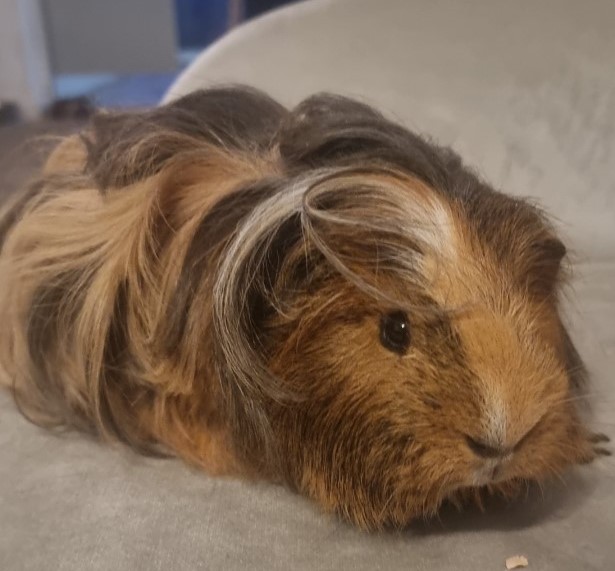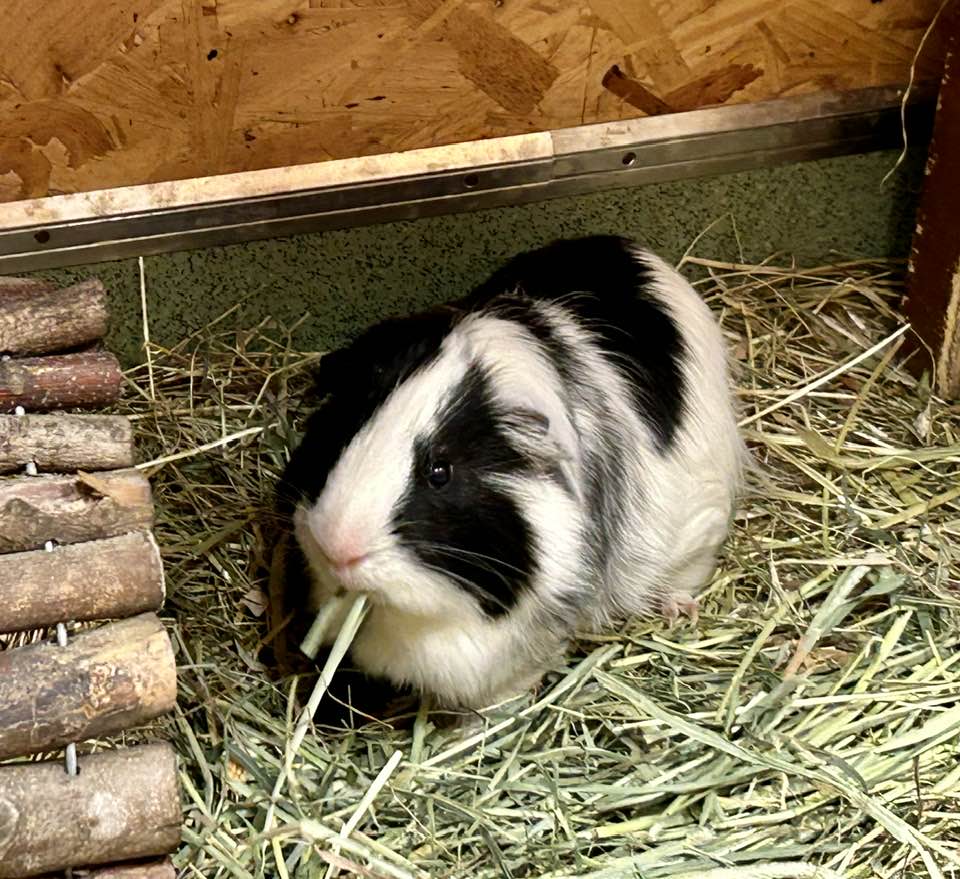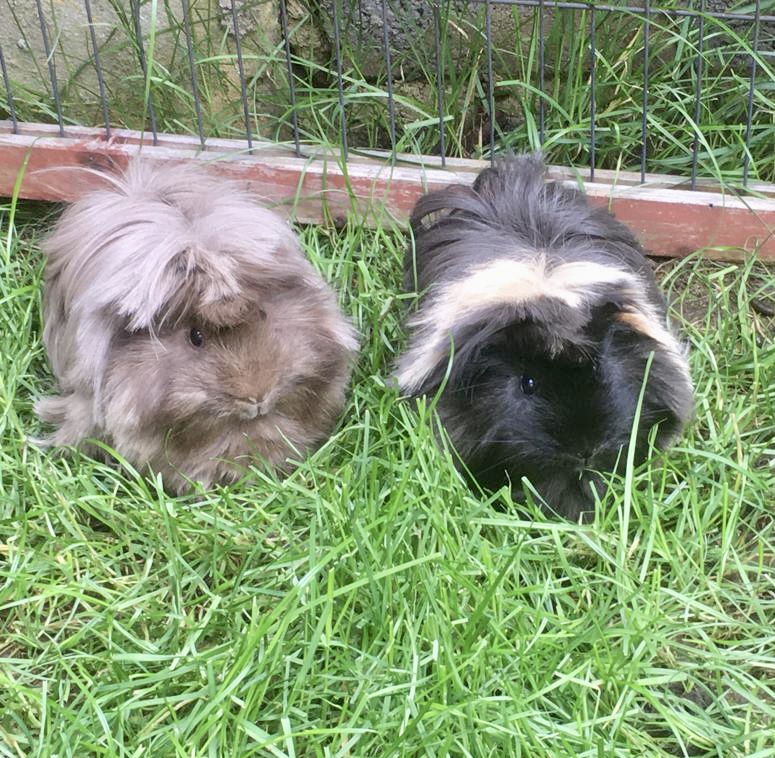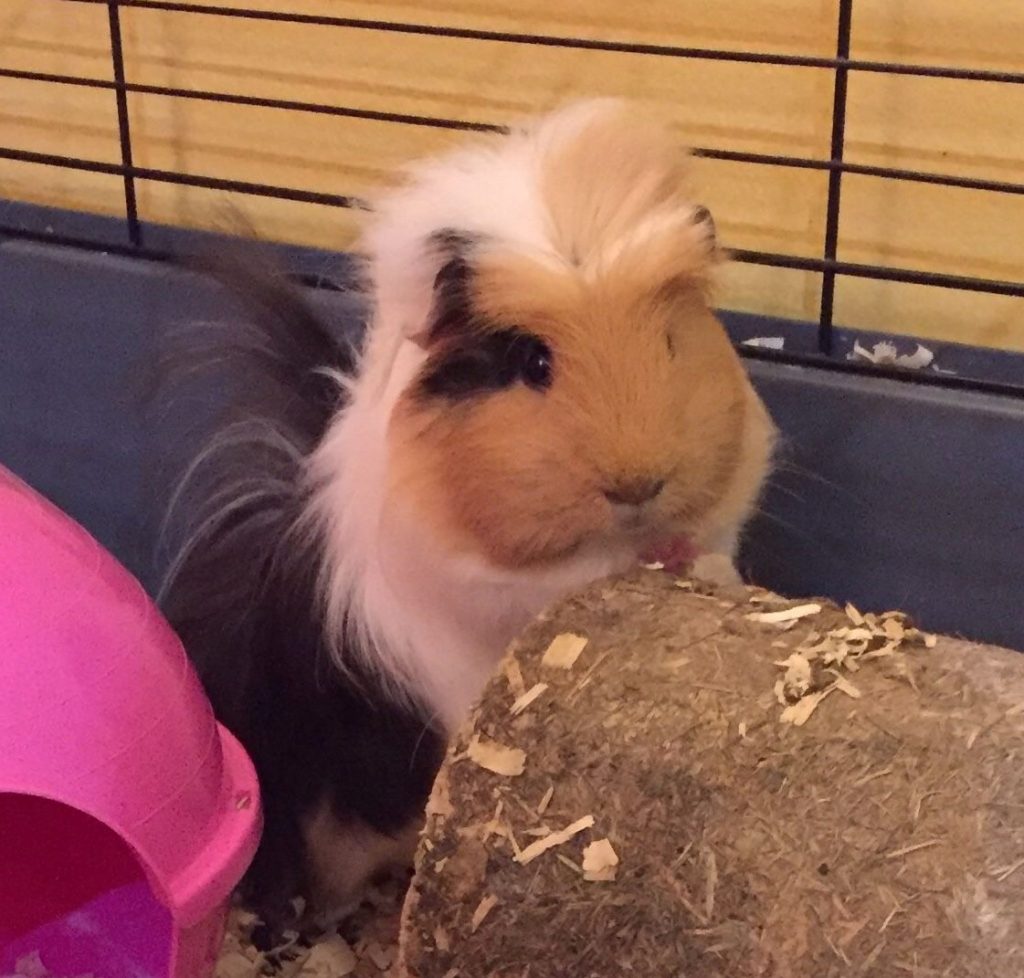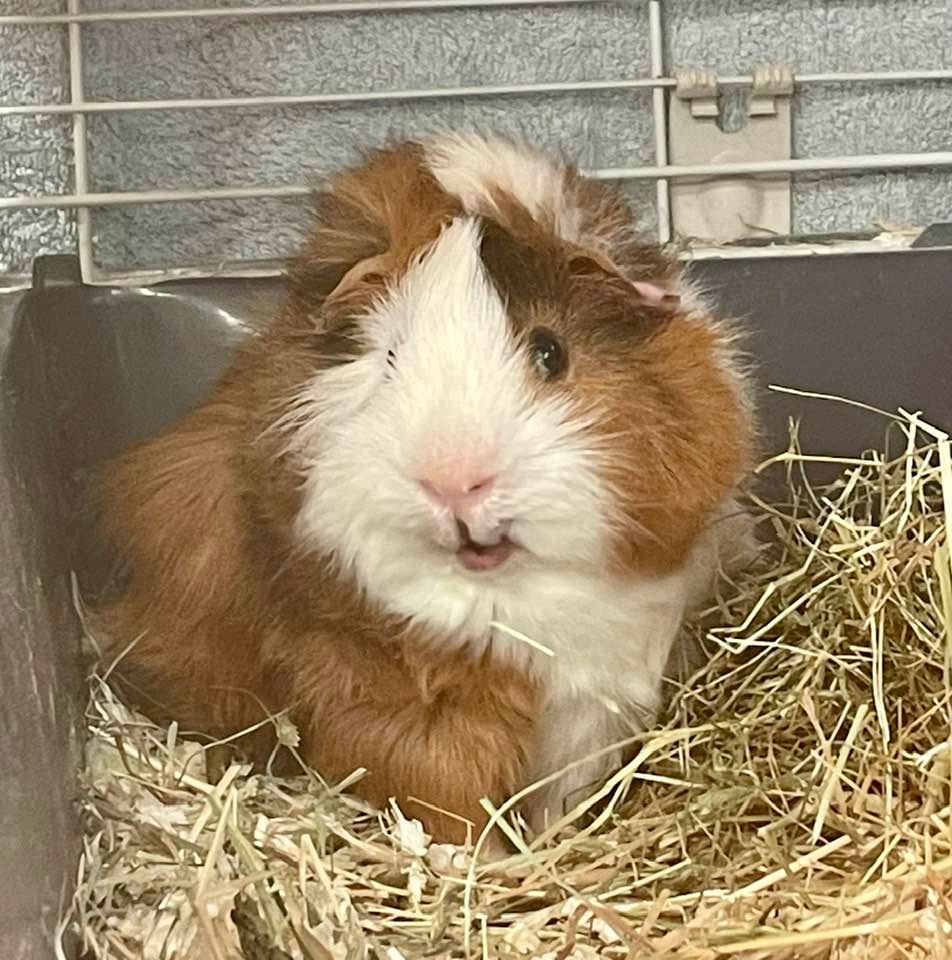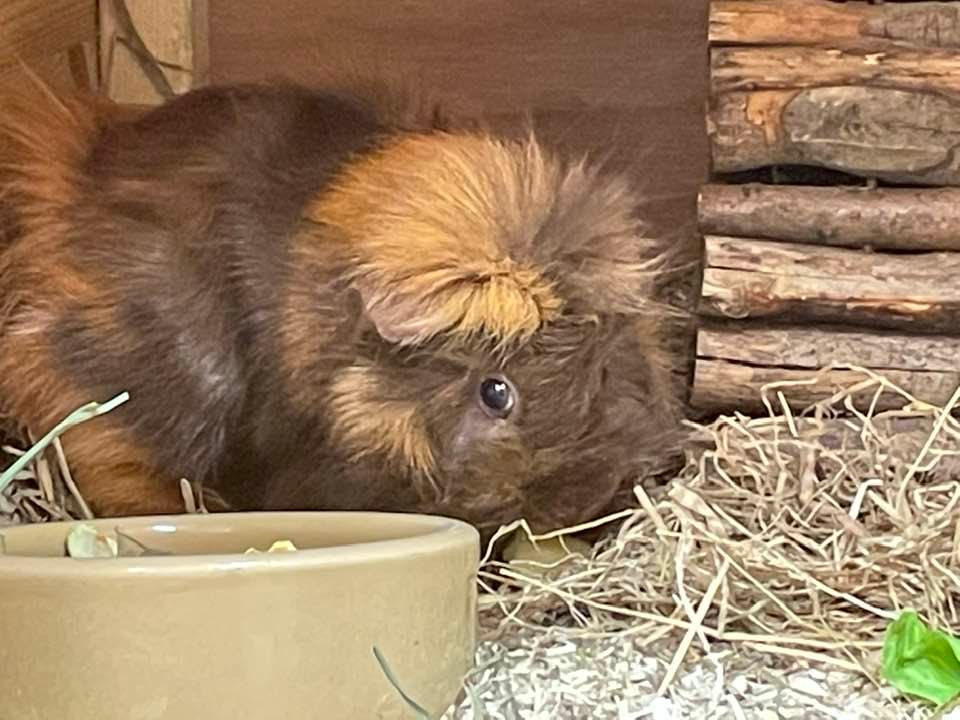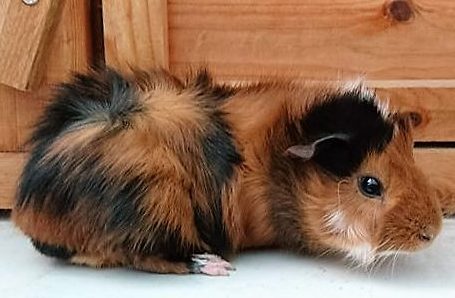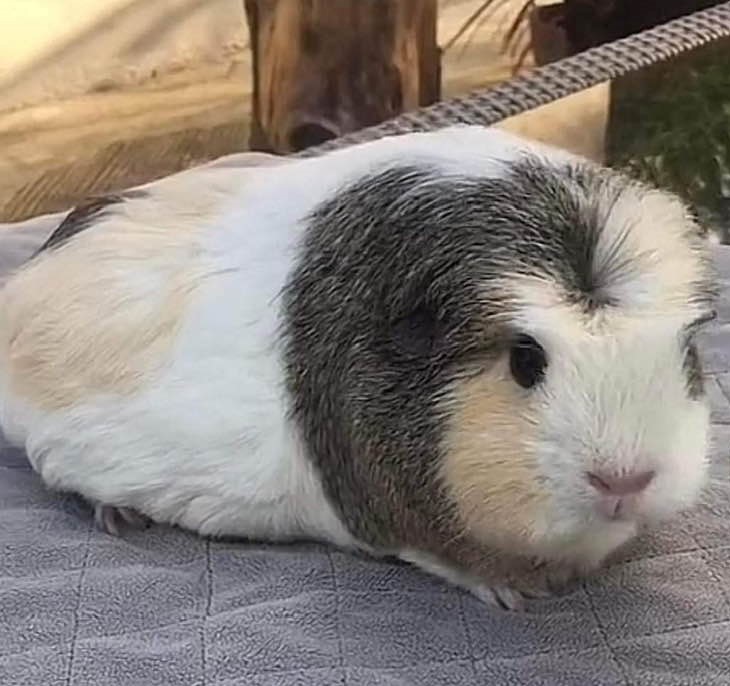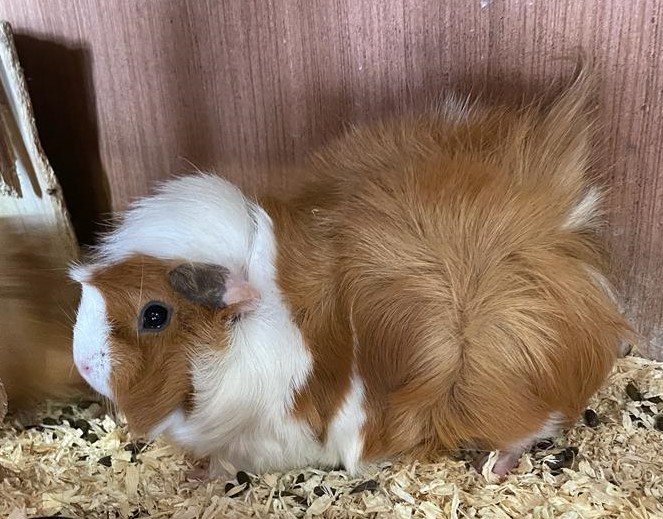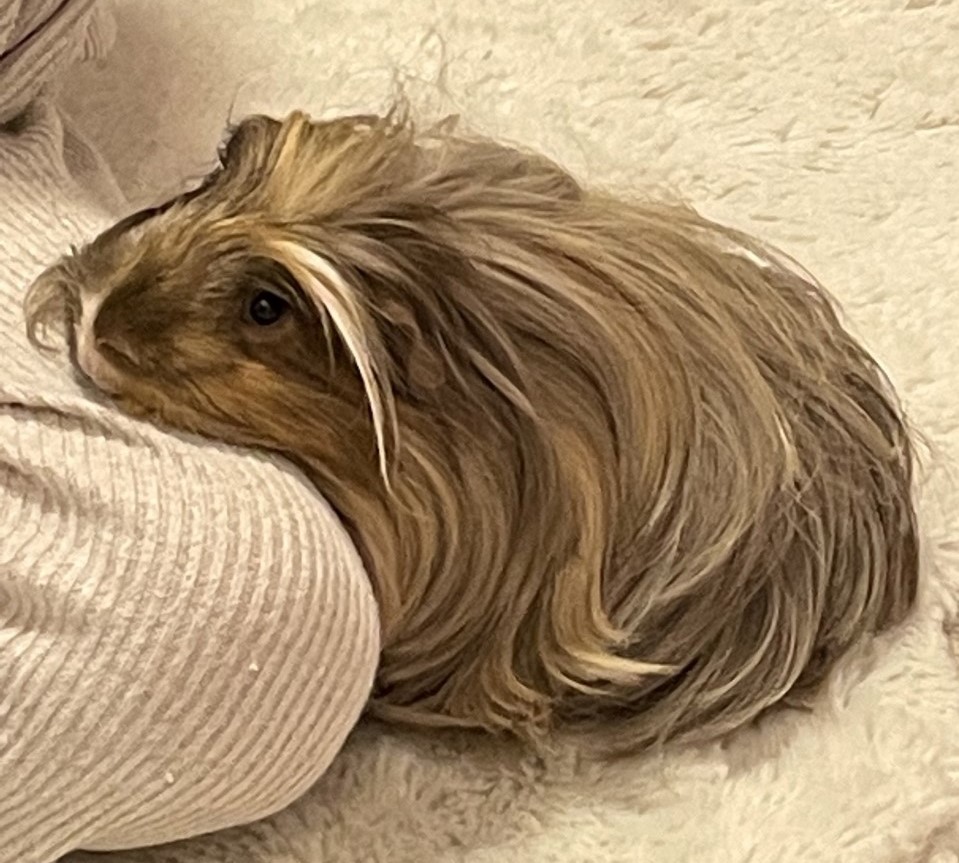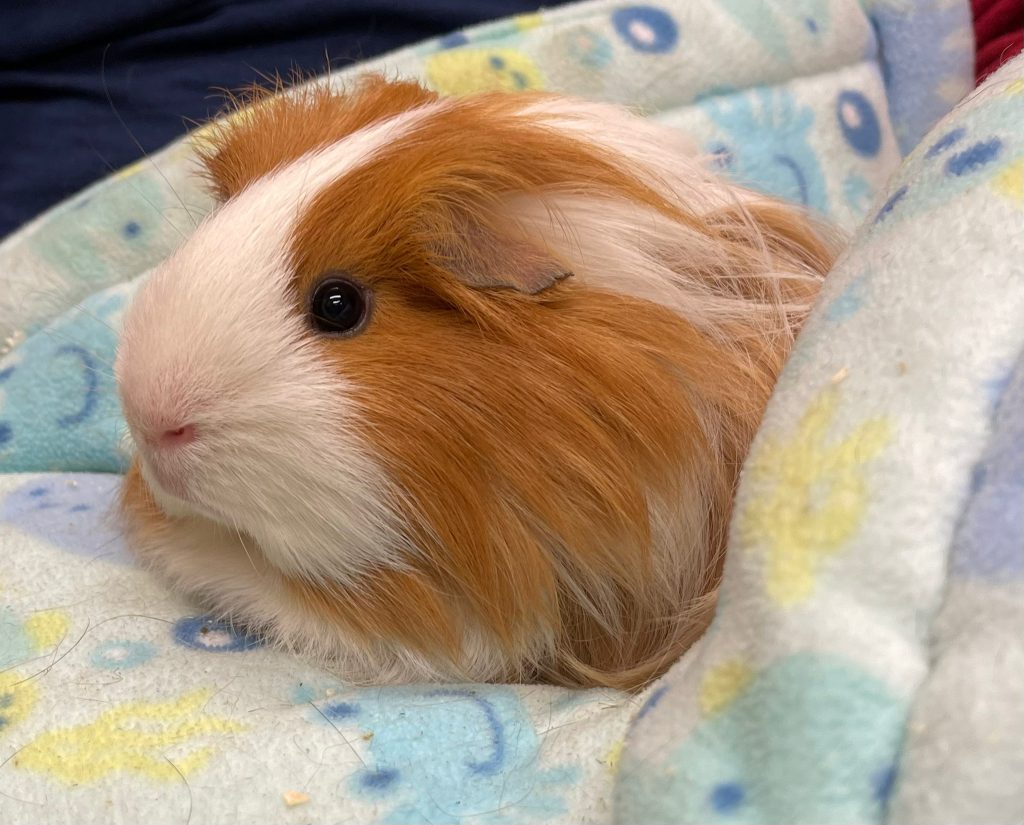We are delighted that you are considering adopting from us! We will need to be assured that all the criteria listed below are met in order for us to proceed with an adoption. If in doubt, please ask! Our requirements are similar but not the same as other Rescues!
Housing – (we often have secondhand setups available for sale)
- Guinea pigs are social animals, and so need to be homed in pairs or groups. We will therefore only rehome guinea pigs in pairs or groups or as companions for other guinea pigs.
- We will require photos/videos of your setup with measurements and a completed adoption application form in order for you to be added to the waiting list. A typical setup will include an indoor cage with an indoor play area and/or an outdoor hutch with an outdoor play area. We will let you know if more information is required.
- The minimum hutch/cage/enclosure space for a pair of guinea pigs is 150 x 60 cms (5ft x 2ft) or equivalent on one level. This equates to a C&C grid-style cage of a minimum of 4×2 panels – preferably 5×2. (6×2 or 7×2 or equivalent for a trio) This needs to be a sheltered, dry space ie not on an outdoor hard surface or grass.
- Additional levels eg two story hutches or loft spaces are an extra bonus for the guineas.
- Ramps must be shallow, have excellent grip eg carpet or fleece and have sides to them.
- Indoor spaces need to be safe from cats, dogs, other pets and small children.
- Guineas and their cages must not be placed directly on underfloor heating or next to a working radiator or in a draught.
- Outdoor hutches are fine in the warmer months (protected from direct sunlight) but should be in a protected area or enclosed in a shed/garage in winter where temperatures do not drop below 5 degrees celsius. This area must have natural light.
- Outdoor hutches must be raised off the ground, meet the minimum size requirements as listed above and must be fox-proof (fox-proof mesh and additional fasteners eg hasp & staple style as foxes can open standard bolts).
- Guinea pigs hate damp, wet conditions. Hutches must protect from rain and flooding.
Examples of suitable housing
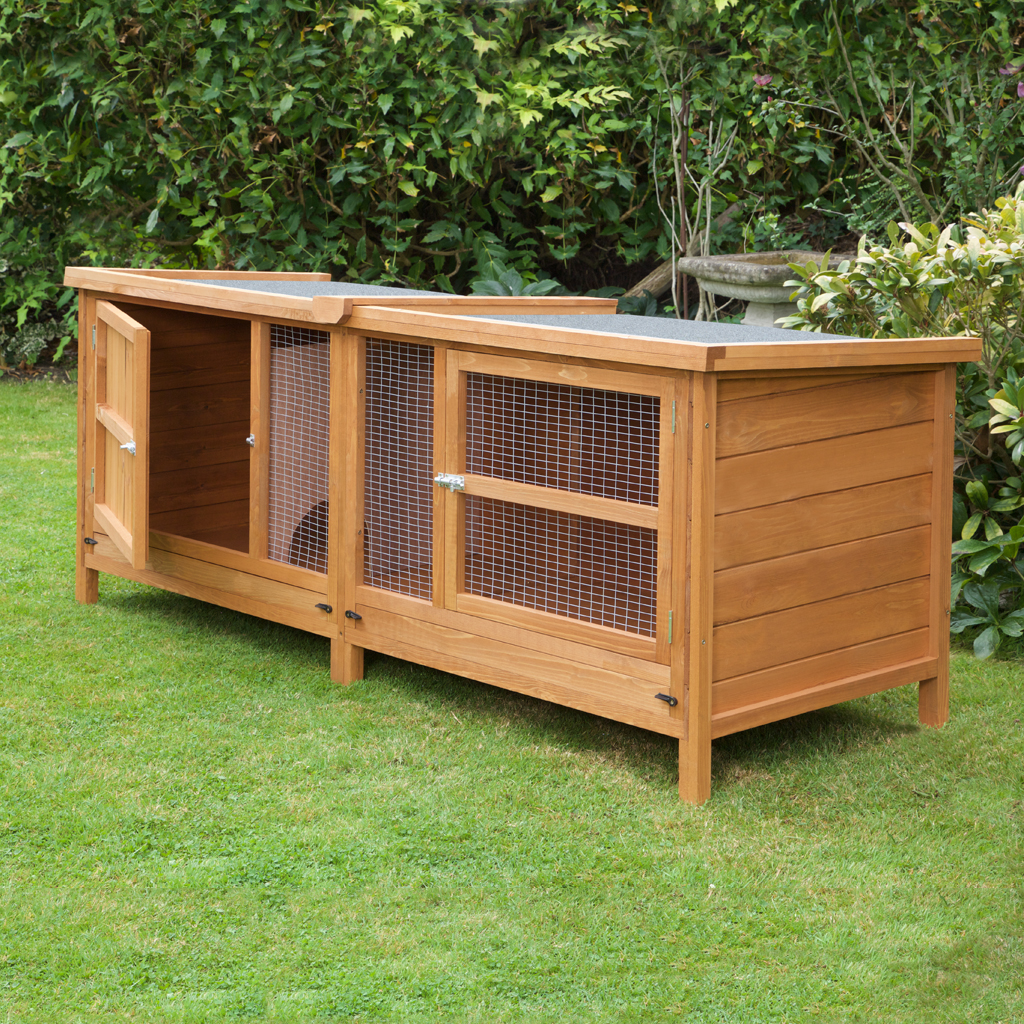
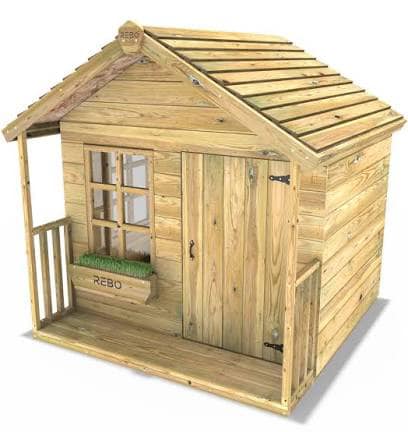
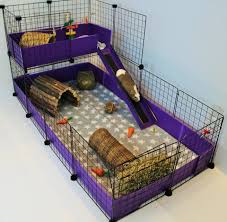
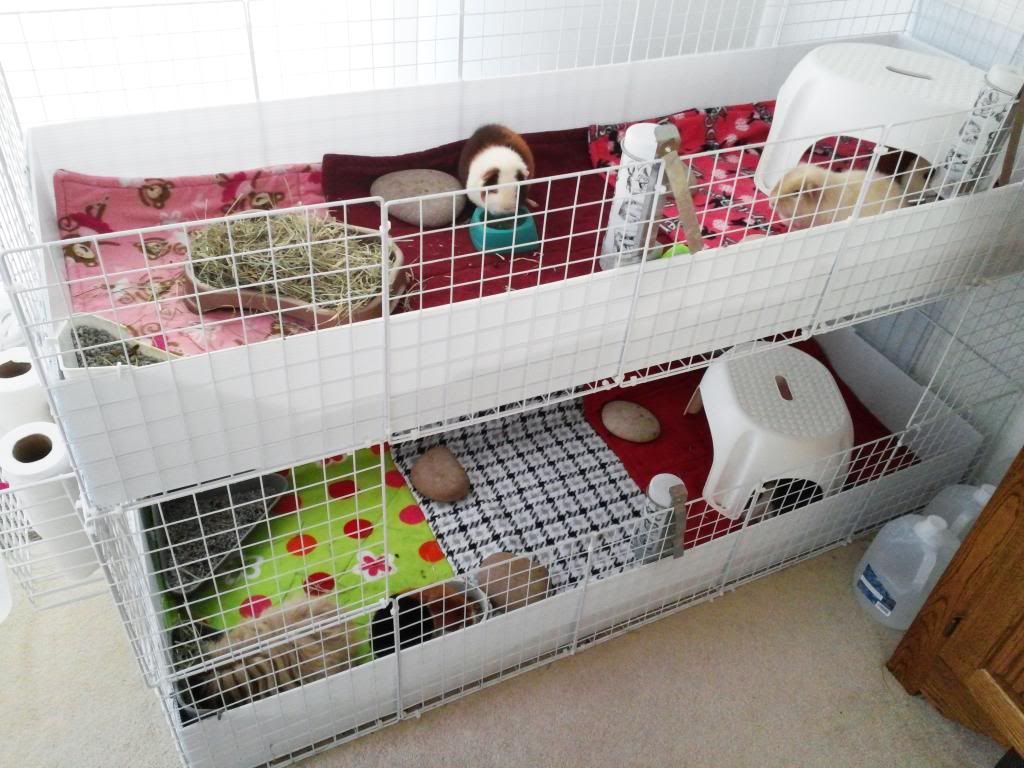
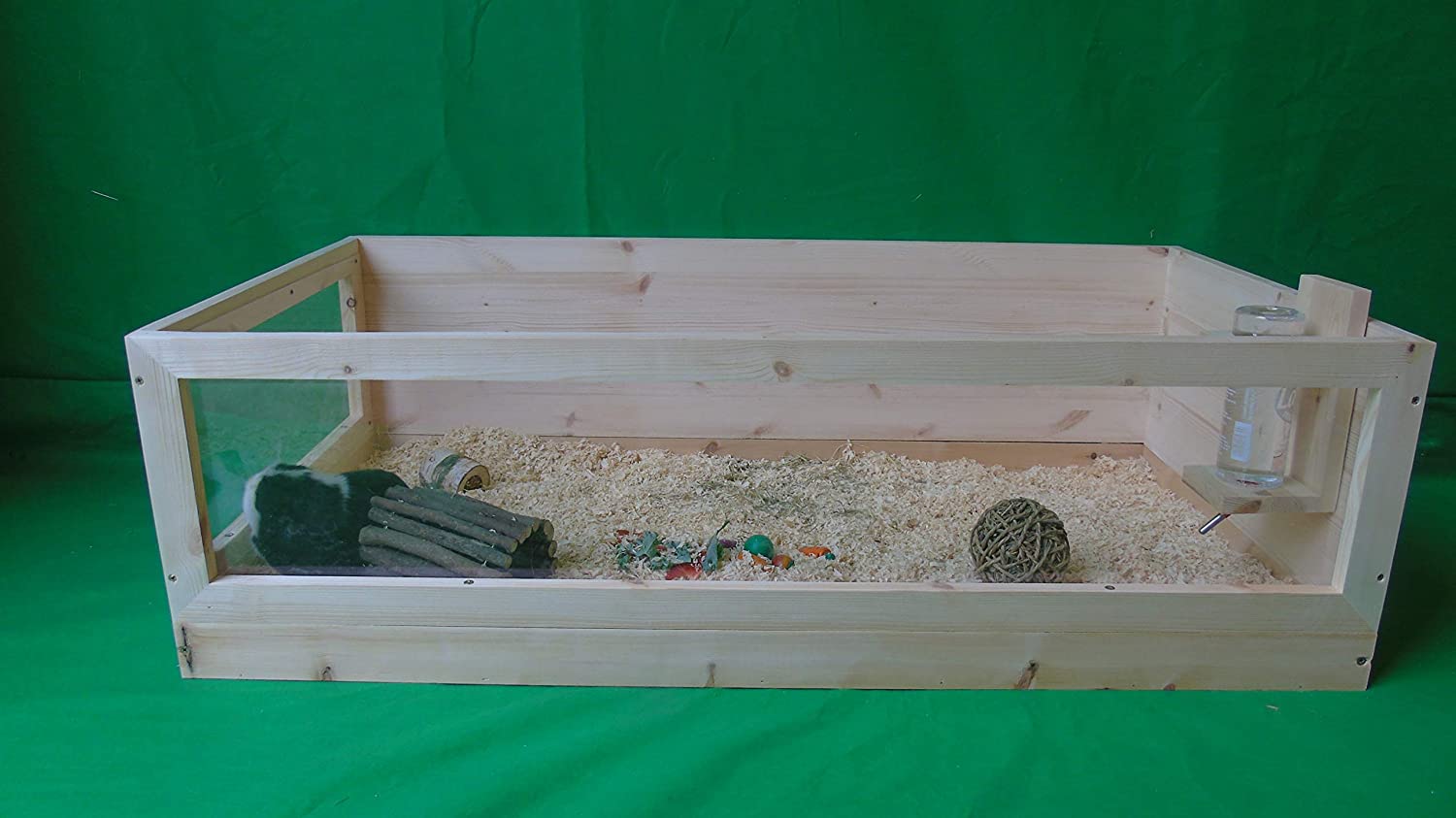
Play Areas
- Guineas should be provided with a play/exercise area in addition to their hutch/cage. This should be a minimum of 120 x 120 cms. Preferably 180 x 120 cms for a pair.
- Outdoor runs need to be fox-proof and provide protection from the elements.
- Indoor play areas need to be safe from other pets or small children.
- Free roam areas of an indoor room/shed floor need to be safe (cables protected etc)
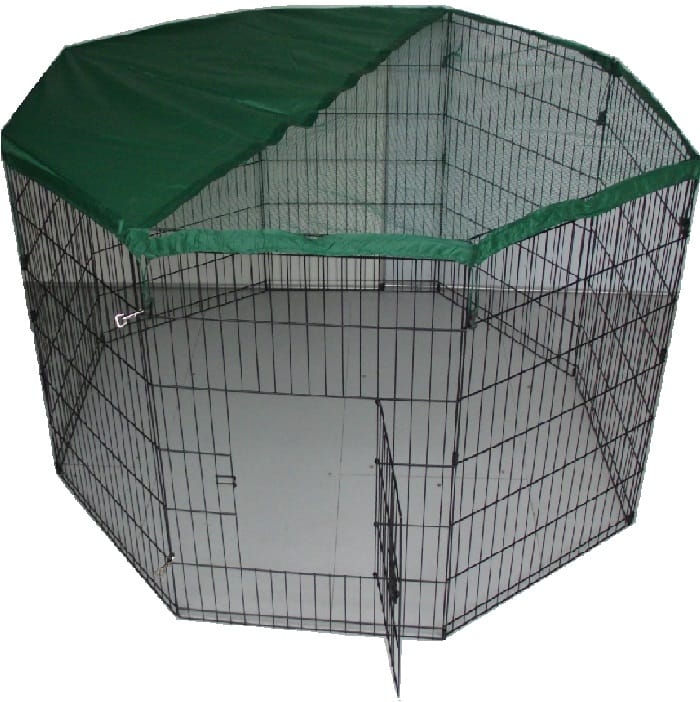
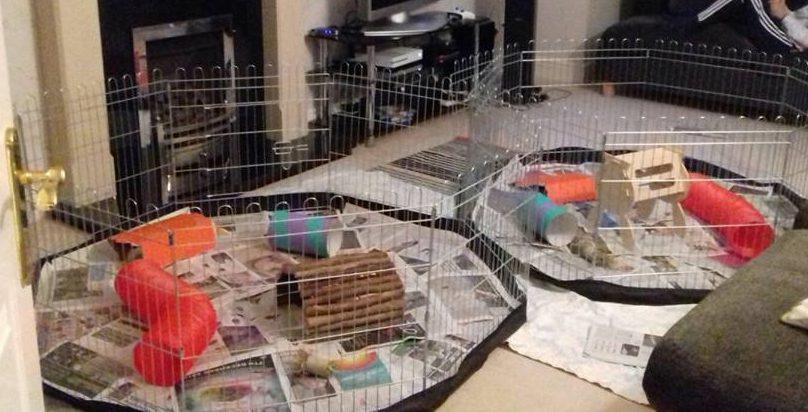
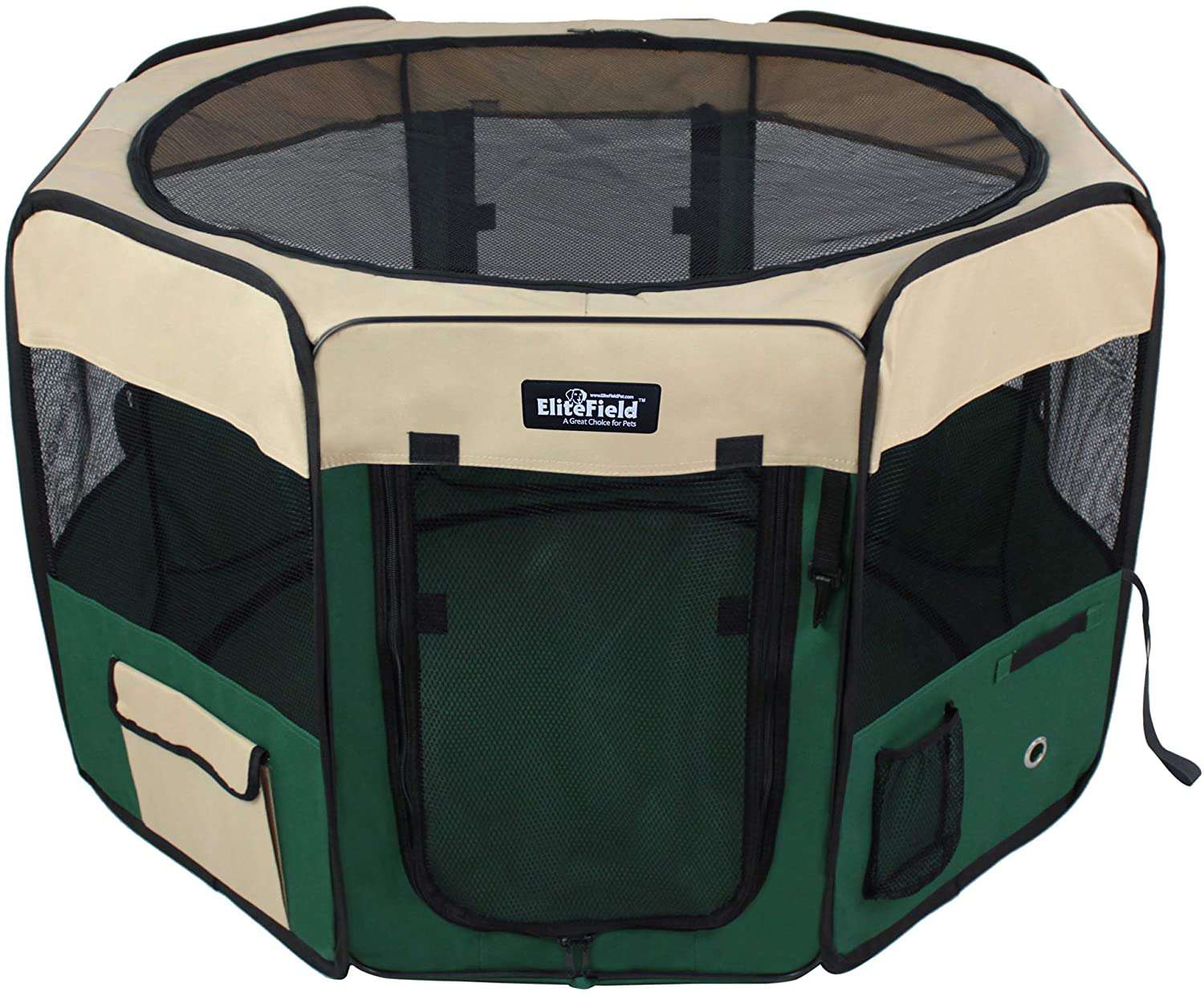
Bedding, Food and Hay
- BEDDING choices are numerous. Your lifestyle and where the guineas are to be kept will help to narrow down your choices!
- Woodshavings are excellent if they are good-quality, kiln-dried and dust extracted.
- Hemp bedding is heavier, generally less dusty but a bit prickly
- Paper bedding or carefresh makes are also available
- Newspaper is fine as a liner. Care needs to be taken as regards the ink
- Fleece bedding is attractive, warm and good-quality makes are good for wicking away moisture. Your washing machine will be in constant use though! (Non-bio washes with no fabric softener)
- HAY comes in lots of shapes and sizes. The key thing is that it is fresh, non-musty and soft to prevent respiratory problems or hay poke. A guinea pig’s diet should be made up of 80% or more fresh hay. We use quality companies like Hay-Day.co.uk
- A good quality Meadow hay should be used as bedding, play material and for munching
- Timothy hay is a favourite but should be fed in smaller quantities as a daily treat.
- Dried grass and dried forage particularly in the Winter months are good sources of healthy munching
- DRY FOOD/NUGGETS/PELLETS are readily available but should be fed in moderation as they are highly processed and often full of unnecessary additives.
- Adult guineas are best on grain-free diets to minimize the creation of bladder stones, bladder sludge and kidney stones that can be fatal in guinea pigs.
- Cereal mixes are not good as they encourage selective feeding, get wasted and are often full of unrequired extras.
- FRESH FOOD should be fed on a daily basis. Guineas love a huge variety of fresh fruits, vegetables and salad but, care needs to be taken to ensure that what they receive is well balanced as, like humans, the sweeter stuff is most popular and usually the worst for them!
- WATER – needs to be available at all times. Never add anything to the water – keep it pure. Using low calcium and/or filtered water is recommended to guard against bladder stones/sludge. All water bottles will leak as they expand and contract with changing temperatures. Drip catcher fleece squares or a bowl of substrate under the nozzle can help to prevent wetness from spreading throughout the cage.

